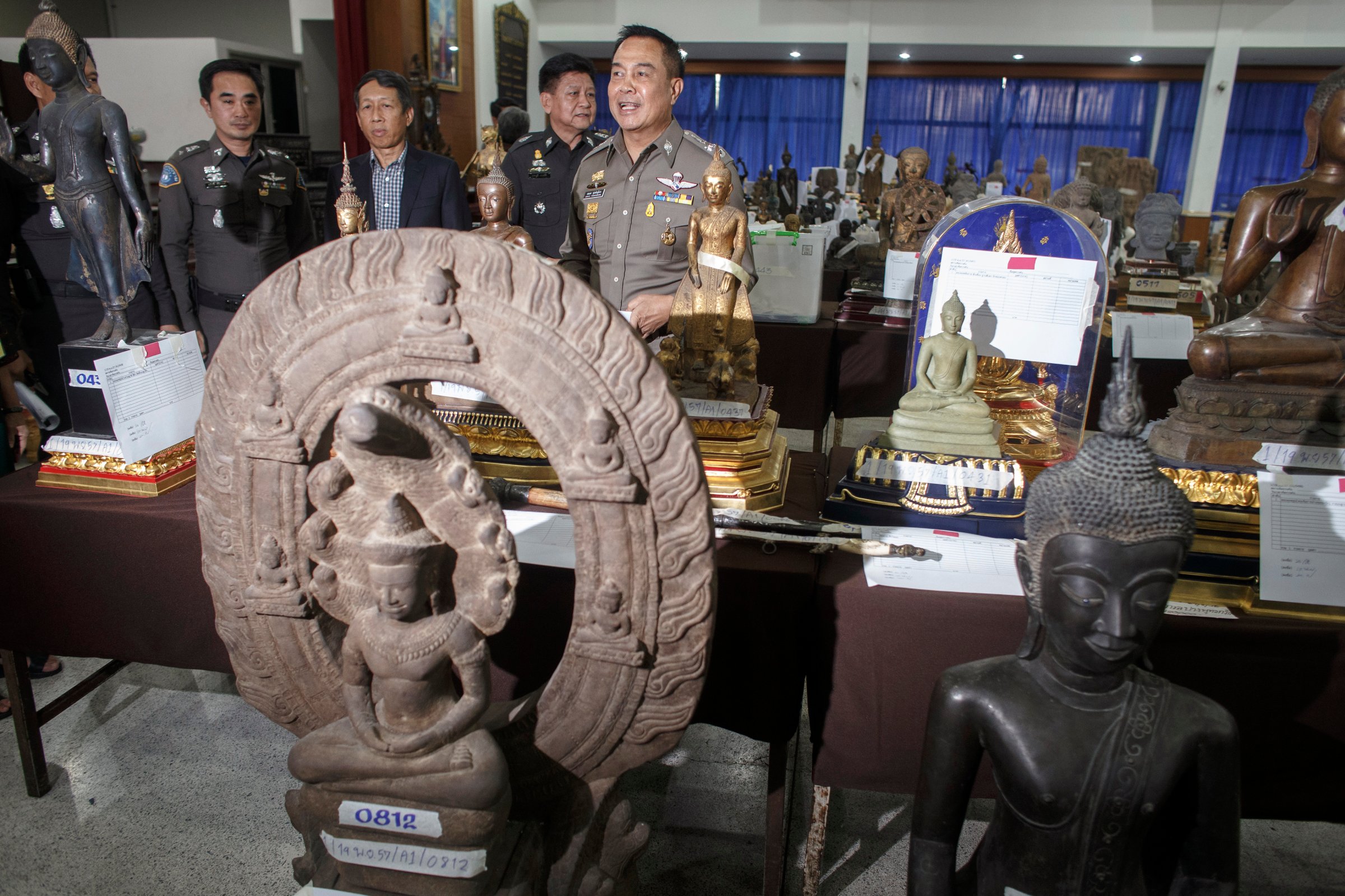
Thailand may be ruled by a military dictatorship until 2016, a senior junta official has revealed. His comment came as a purge of political rivals intensified in the Southeast Asian nation.
Speaking to the BBC on Wednesday, Thai Finance Minister Sommai Phasee said elections “may take, maybe, a year and a half.” Coup leader General Prayuth Chan-Ocha had previously vowed to hand power back to the people before the end of 2015.
“Everything depends on the road map, so we must see first if the road map can be completed,” explained Sommai. “Elections take time to organize.”
The news comes after Thai Justice Minister General Paiboon Koomchaya revealed martial law would remain “indefinitely.” He also disclosed that police top brass had been detained for corruption offenses involving tens of millions of dollars.
Former Central Investigation Bureau (CIB) chief Pongpat Chayapan and 16 associates were charged this week with various embezzlement offenses — including operating gambling dens, hording cash and gold, and taking bribes from oil smugglers — as well as insulting the nation’s revered royal family.
Thailand has the world’s strictest law governing lèse majesté, or royal defamation. Under Article 112, sentences range from three to 15 years’ imprisonment and human-rights activists frequently say the legislation is used as a tool of political oppression.
However, it is “quite unusual for lèse majesté to be used against high-ranking police officers — against their own people,” says Pavin Chachavalpongpun, a Thai political scientist at Japan’s Kyoto University.
Analysts say the latest arrests are evidence of Prayuth fortifying his position rather than tackling corruption. A staunch royalist, the 60-year-old appears to be targeting the institution of the police, which is known to back the powerful family of ousted Prime Minister Yingluck Shinawatra.
However, others say the purge is more related to the sensitive subject of royal succession. King Bhumibol Adulyadej, beloved by Thais, will be 87 on Dec. 5 and is ailing. His heir, Crown Prince Maha Vajiralongkorn, does not command anything like the same veneration.
Bhumibol is also the world’s wealthiest monarch, worth an estimated $30 billion, and many ascribe Thailand’s ongoing political tribulations to jostling for control of this vast treasure chest.
Deposed CIB chief Pongpat is known to be close to the Crown Prince — he frequently wears a pin with a photo of the royal couple’s son, Prince Dipangkorn Rasmijoti — and three of his associates arrested Wednesday are relatives of Vajiralongkorn wife, the Royal Consort Princess Srirasm, including her brother, Natthapol Akkharaphongpricha.
There are many conflicting theories about what is happening. Some suspect it could be a schism within the royal family itself, or even an attempt by the nation’s new leaders to cloister Vajiralongkorn from powerful allies. However, Srirasm comes from humble means — she’s a former waitress — and so the targeting of her kin could be an attempt to expunge the more rakish elements of the Crown Prince’s circle before the succession.
What’s indisputable, though, is that “this is about using Article 112 as a political weapon to undermine political opponents,” says Pavin. “I don’t think this is as simple as being just about corruption, not at this point in Thai politics.”
No matter what the cause, some say the opportunity to root out bad apples should not be missed. “We should take this opportunity to clean up all the corrupt police,” Chuwit Kamolvisit, a former Thai brothel owner now enjoying a coda as an anticorruption politician, tells TIME. “If we cannot trust the top police like Pongpat, then how can we trust the rest of the Thai police?”
That said, there’s little evidence that Thailand’s military government is best placed to administer this remedy. Over the past six months of military rule, habeas corpus has been suspended, strict censorship imposed and hundreds of people threatened and imprisoned for trivial acts of defiance — like giving the three-finger salute used in The Hunger Games movies.
Meanwhile, General Prayuth’s younger brother — assistant army chief Lieut. General Preecha Chan-Ocha — was recently revealed to have amassed $2.5 million in net assets. He has not been investigated.
Asked whether top military generals are also corrupt, Chuwit chuckles nervously. “This is Thailand,” he says, “there is corruption everywhere.”
More Must-Reads From TIME
- The 100 Most Influential People of 2024
- Coco Gauff Is Playing for Herself Now
- Scenes From Pro-Palestinian Encampments Across U.S. Universities
- 6 Compliments That Land Every Time
- If You're Dating Right Now , You're Brave: Column
- The AI That Could Heal a Divided Internet
- Fallout Is a Brilliant Model for the Future of Video Game Adaptations
- Want Weekly Recs on What to Watch, Read, and More? Sign Up for Worth Your Time
Write to Charlie Campbell at charlie.campbell@time.com